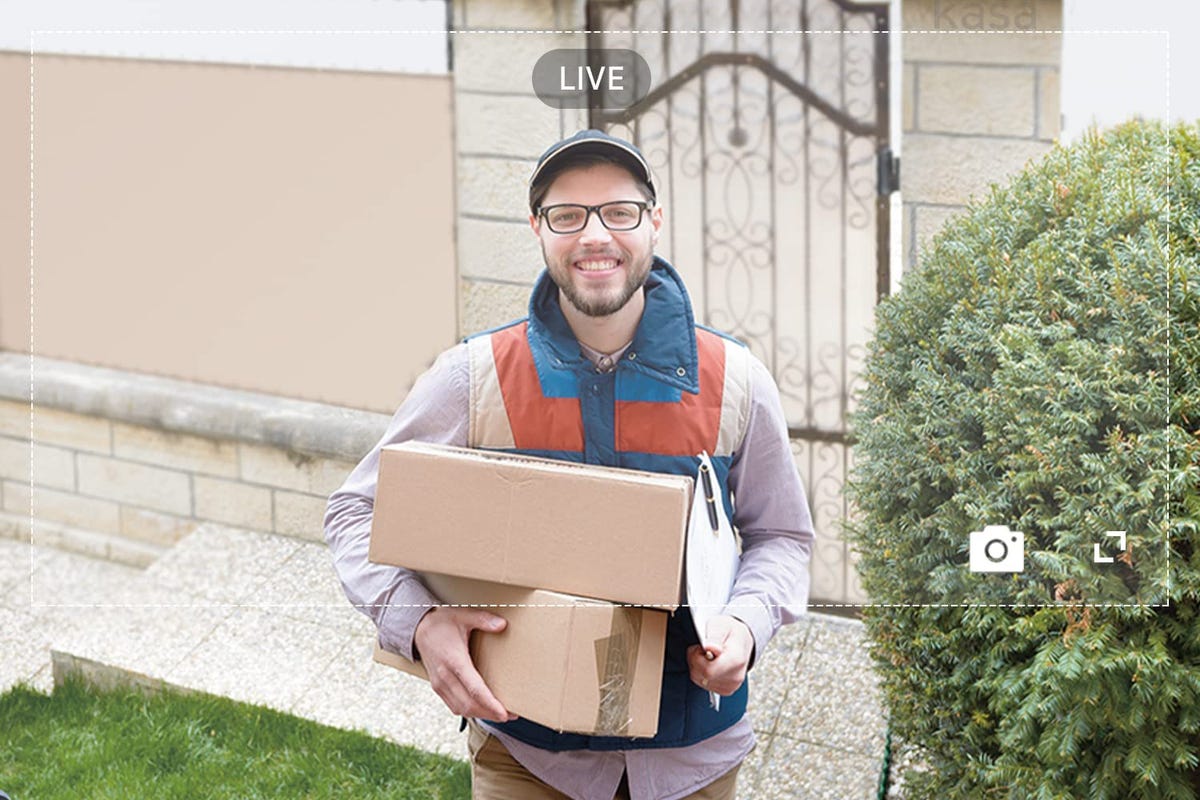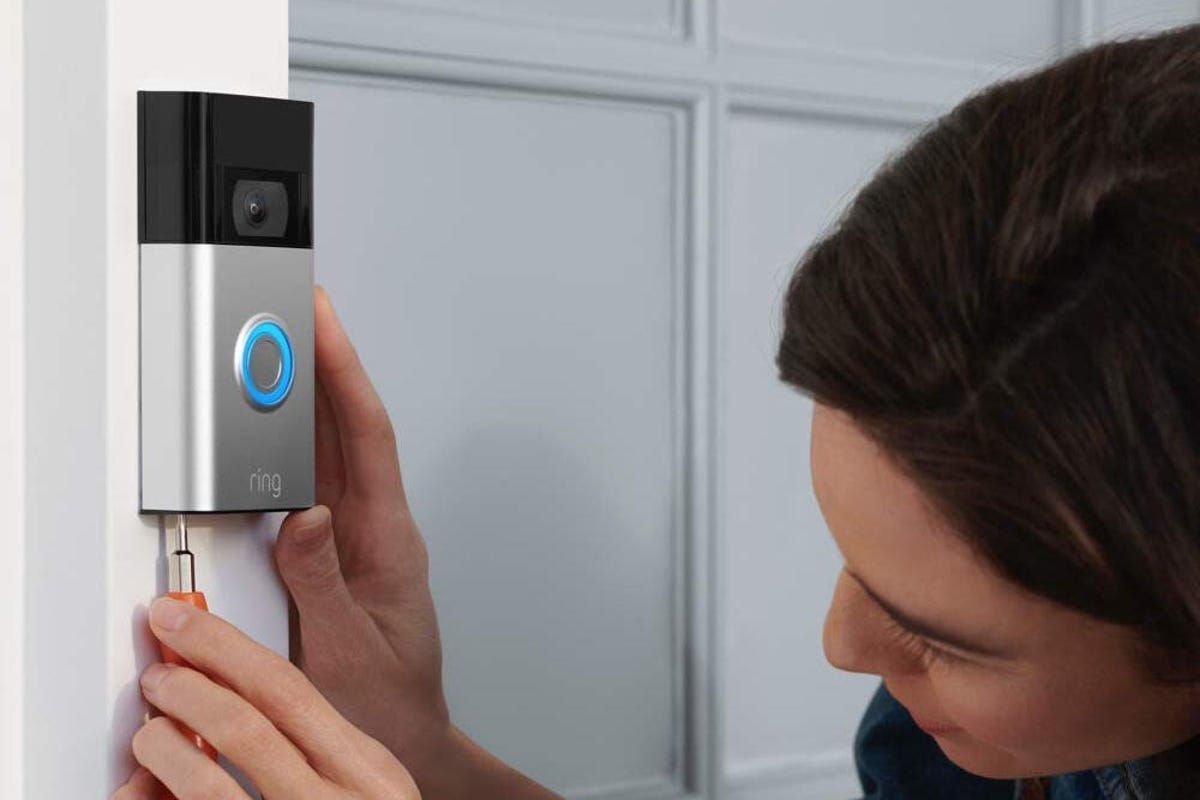We’re no strangers to face identification know-how. iPhone customers have been creating face profiles for Apple for years, and now biometric face scans assist us full every kind of duties, like unlocking your telephone and even paying for groceries. Firms are fast to guarantee us that face scan knowledge is encrypted and never handed out to 3rd events, however some privateness issues linger — and no instance is so pertinent as “acquainted face” dwelling safety know-how, which I talk about in my current function on dwelling AI.
Safety corporations like Google Nest and SimpliSafe are utilizing face scan know-how that enables customers to create a face contact record for family and friends, utilizing footage you have already got. That knowledge then will get utilized in video doorbells and residential cameras. However as a substitute of creating face identification selections for your self, you make them for different individuals, presumably with out their consent. That is a brand new can of worms, and it deserves a better look to anybody investing in dwelling safety gadgets.
The fundamentals behind ‘acquainted face’ know-how
Doorbells like Ring’s can let you understand if a human approaches, however algorithms can go farther.
Nest was the primary, however now different safety corporations are beginning to supply their very own face recognition choices. The method is comparable throughout manufacturers: Subscribe to a service like Nest Conscious ($8 monthly) or SimpliSafe’s beta program for skilled dwelling monitoring with AI, and face recognition is enabled on appropriate dwelling cameras and video doorbells. In Nest’s case, it really works with appropriate methods like ADT, too.
You then have the choice to make use of face images to create a kind of library of acknowledged and named faces. The cams’ algorithms will do their greatest to investigate approaching faces and report in the event that they acknowledge anybody. Nest is fast remind individuals to verify native privateness legal guidelines (we’ll get to that half under) and get an individual’s permission first, though there is not any requirement to take that step. SimpliSafe suggests utilizing it for encounters as informal as your dogwalker, so its safety monitoring brokers can concentrate on strangers once they have a look.
“Over time, facial recognition turns into extra correct at figuring out acquainted faces and may ship you extra useful alerts,” stated Julie Zhu, product supervisor for Google Nest. “We will additionally see a future the place Nest customers construct automations associated to a particular individual, like customized doorbell chimes.”

Alerts for acquainted faces present some usability, however slim advantages for the work concerned.
Doorbell chimes could also be a tricky promote for householders eager about logging their associates’ faces. On the safety facet, Zhu additionally identified that the software program lets Nest notify customers if an unrecognized face reveals up on the door, which could possibly be a function for individuals who have issues with strangers. Then again, it is simple to check a state of affairs the place you actually need to know if it is nosy Aunt Carol on the door, or in case your disagreeable ex has made an surprising go to.
Total, we’re not solely satisfied these options are price signing up everybody’s face. Sensible dwelling integrations like robotically unlocking doorways for sure faces have extra attraction, however this type of compatibility is sluggish to kind, and privateness points stay.
Privateness, face knowledge and massive questions

Creating face profiles for household is comprehensible, however creating them for employees or acquaintances begins feeling odd.
Two huge questions come up when contemplating face ID know-how: Can or not it’s stolen, and may regulation enforcement use it for monitoring? Safety vulnerabilities and knowledge breaches are, sadly, not going anyplace, which is why storing and encrypting face knowledge on-device is so essential. Firms like Google do retailer face knowledge within the cloud, nevertheless it’s encrypted first in order that nobody from Google can entry face knowledge straight. There should be an possibility for corporations to make use of face knowledge to coach their AIs even when they cannot entry it straight.
The second query is thornier. Facial recognition and regulation enforcement are an unstable concoction with loads of heated opinions. Federal businesses and native regulation enforcement each use face recognition, however with startlingly few laws in place.
So, might cops demand your face library as a approach to observe potential suspects or anybody else they needed? Whereas cops can request dwelling safety knowledge in case of life or demise emergencies (or warrants), we haven’t any studies of them asking for face profiles. There’s not likely a method for regulation enforcement to gather and course of these face profiles within the first place, and even when there was, corporations do not sometimes preserve that knowledge of their cloud and unencrypted. So it is not a big concern — right now.

Arlo’s line of doorbells comprises many detection options, however no face profiles.
Extra worrying are the belief points concerned in managing a portfolio of household and pal faces, then letting your cameras’ algorithms use them robotically. Nest’s acquainted face instruments do restrict the power of youngsters below 13 to make use of or change them, however adults can use them nevertheless they need so long as they’ve images to work with. And also you’re incentivized to make use of extra faces so the detection options can study and grow to be extra correct over time.
With Apple Intelligence already trying by our telephones’ images to generate photographs, we’re getting extra comfortable with AI seeing our pics. However it might nonetheless really feel like a violation of privateness to some individuals when video doorbells or cameras get entangled. And that is inflicting some governments to take motion.
Legal guidelines are catching as much as face recognition, nevertheless it’s unpredictable

As privateness legal guidelines develop extra frequent, we may even see acquainted face know-how largely banned.
Out of all of the detection choices accessible with at this time’s algorithms, facial detection does the perfect at summoning fears of sci-fi dystopias. That is one purpose it is also a number one driver in creating legal guidelines about AI and face privateness, that are nonetheless sporadic however rising.
Whereas federal laws stay slim to none, we now have govt orders requiring businesses to assessment all their face recognition instruments. The European Union goes a step additional and banning real-time face recognition in public for any purpose.
Domestically, states and cities within the US have stepped as much as fill the hole. Illinois has handed a few of the hardest biometric privateness legal guidelines, which has led Google to dam the familiar-face service from the state solely. In the meantime, privateness legal guidelines in not solely Illinois but additionally Texas and Portland, Oregon, preserve SimpliSafe from providing its AI-enhanced guard providers with face recognition in these areas.

Putting in a Ring video doorbell.
We’re already seeing some workarounds for these rising privateness legal guidelines. Eufy, for instance, advised me its workforce was excited about utilizing mum or dad firm Anker’s voice-recognition capabilities in its dwelling safety merchandise. Would you favor saving voice profiles as a substitute of faces? ScarJo will not be a fan, however some householders could really feel safer with this selection.
We’re retaining tabs on this type of face recognition, and we’ll let you understand if issues come up or new laws begins to have a noticeable influence on the sphere. For now, use this type of know-how judiciously, and attempt to ask permission first.
For extra data on dwelling safety and privateness, check out our guides on the greatest methods to discourage burglars, if it is authorized to report video and audio in your house and the spots to by no means put a house safety digital camera if you wish to keep away from lawsuits.


